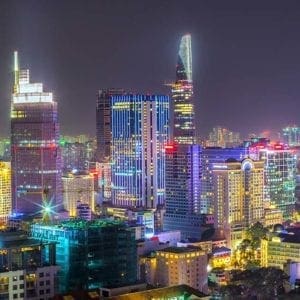 Overall U.S. worker productivity is falling. A new Wall Street Journal (WSJ) article says employers are paying their staff more and getting less in return. The WSJ article cites an August 9th U.S. Labor Department report, which found that worker productivity is down for the 12th month in a row!
Overall U.S. worker productivity is falling. A new Wall Street Journal (WSJ) article says employers are paying their staff more and getting less in return. The WSJ article cites an August 9th U.S. Labor Department report, which found that worker productivity is down for the 12th month in a row!
In fact, the U.S. economy is experiencing its longest run of falling worker productivity in nearly four decades, according to the latest Labor Department figures. Worker hours are increasing at a faster rate than output, otherwise known as productivity. The WSJ article also states it’s the longest negative productivity drop since 1979.
Conversely, another Bureau of Labor Statistics report shows restaurant and hotel labor costs rose 2.2 percent during the 1st quarter 2016 and another 2.6 during the second quarter this year. Those are stressful statistics for hotel operators, especially considering wages are expected to continually climb as global wages continue to rise.
And labor is generally the single largest cost for hotels. According to the 2014 edition of Trends in the Hotel Industry, labor costs in 2013 represented 32.3 percent of total revenue, above the long-run average of 31.2 percent. Labor costs measured as a percent of total revenue runs from a high of roughly 35 percent at convention and resort hotels, to a low of 22 percent at limited-service and extended-stay properties. Trends is the annual survey of hotel operating statements conducted by PKF Hospitality Research (PKF-HR), a CBRE company, since 1936.
So it’s no surprise hotel owners and potential hotel owners always seek getting that number down. When Courtyard by Marriott debuted in 1983, it forged a new industry category: select-service. By stripping the hotel of many unneeded features such as bell staff, concierges and restaurant personnel, these properties successfully eliminated many full time positions from the hotel model. That product, and the hundreds of select service brands that have followed, reinvented the traditional full service model by shedding numerous amenities extraneous to their target clientele.
Essentially, select service properties operate more efficiently with fewer people because they do no offer the same breadth of amenities as full service hotels. According to Chuck Kelly of the G7 Hospitality Group, these hotels can be run with as little as .5 of a Full-Time Equivalent (FTE) per available room and a handful of managers/supervisors.
This category spawned a massive industry growth spurt that hasn’t yet relented. In fact, the vast majority of hotels currently in development fall into this category, according to research by Lodging Econometrics, a global authority on hotel real estate.
But it is the hospitality industry; employees are always going to be required to extend that hospitality service. According to the National Employment Matrix, demands for labor needs are expected to rise, with the number of lodging managers in the United States alone increasing 11.6 percent from 282,000 to 315,000 jobs between 2010 and 2020.
Even in the modern, technology fueled world, people still make a difference. This is why extracting as much productivity as possible from each employee is critical. In today’s society, people crave connecting with other people and it’s the most surefire way to ensure guests are happy and return again and again.
So what’s a hotelier to do? One of the ways to help make workers more productive is to invest in updated technology. As cited in the WSJ article, “poor business investment in the new equipment, software and facilities that could help boost worker efficiency will likely have contributed to the slowdown in recent quarters.”
It’s amazing there’s such a dearth in technology investment. One way to reverse course in the worker productivity trend is by investing in new technology such as a cloud-based property management system. This can help workers increase productivity, which may lead to hotels requiring fewer hours per week to operate.
A web based property management system can completely change the front desk agent’s entire job. Visually intuitive, easy to learn and operate, a modern PMS system is a great hospitality solution. A modern PMS is designed to make employees more productive and efficient, and it may also help prevent many costly mistakes.
Plus, new employees may not have to spend nearly as much time training either, when compared to more complicated systems, since training on a modern PMS generally takes as little as two days when done properly. Ongoing training reinforcement is easier too, which may save hours of back of house training that can be replaced by hours front of house helping guests.
Additionally, newer web based property management systems have features such as automatic rate setting and distribution management, allowing owners to repurpose those hours elsewhere, or eliminate them altogether.
More productive and efficient staff means happier guests, which can increase loyalty and your ability to charge higher rates. So spending a little bit now on a modern PMS computer system is perhaps the best investment a hotel operator can make in 2016. Very different than their pre-internet era brethren, the newest web based property management systems help hotels achieve growth, elevate operating performance, and improve the guest experience.
Remember, since your staff may be your hotel’s greatest asset, using each and every one of their hours in the most efficient manner possible can give you the opportunity to achieve maximum profitability at your hotel.
About the author
Joshua Molina is Marketing Communications Manager at SkyTouch Technologies. Accessible from anywhere with an internet connection, the SkyTouch PMS provides visibility and control of operations through real-time, impactful business analytics. With fully integrated property, rate and distribution management, 24/7 tech support, plus over 100 interfaces, the SkyTouch PMS has been optimized to provide proven value, scalability, and mobility, delighting more than 6,000 customers for over 10 years.



















